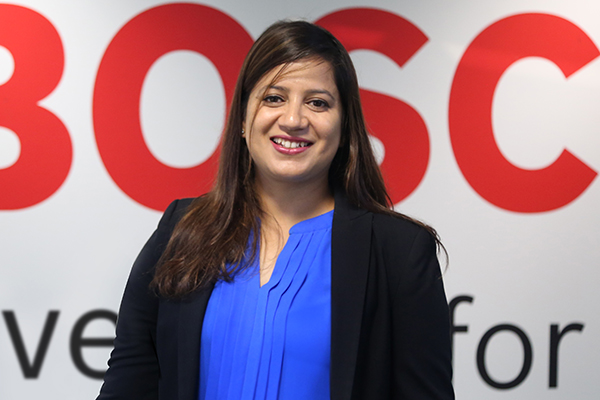Companies need to work with schools to educate their future employees about the range of opportunities that exist in STEM areas, says Swati Vats, Computer Engineer, Robert Bosch Middle East.
Skills in Science, Technology, Engineering and Mathematics (STEM) are crucial with the rapid advances in the digital technologies and will be critical in the shift to a non-oil-based economy. In the future workplace, 41 percent more time will be spent on critical thinking and 77 percent more time will be spent using science and mathematics skills, according to a study by the British Council.
Achieving this will require an education approach that targets the grassroots, so there needs to be a more cohesive and concerted push by education institutions and future employers to promote STEM. A landmark step in this direction, the UAE government has issued guidelines for technical academies at colleges to support learners and establish programmes that allow people to keep pace with technological developments.
Today, most corporations are spending a bulk of their time in research and development and manufacturing products, but at the same time the focus should be to encourage the youth to have a similar vision and understand the impact of innovation on the future of the world as we know it.

To motivate the youth, tech companies often extend opportunities to few eligible students to attend techno commercial trainings alongside industry professionals. This initiative helps the students explore the range of products, discover the unique selling points and offers a chance to learn the design elements of the products and its applications. No matter how advanced technology might get, it is important to develop talent that can understand the most effective use of the technologies. It is exciting to see that the number of female students in the country enrolling in STEM is far higher than countries such as the UK, Canada, Germany and France. A report by Times Higher Education indicates that almost eight in ten learners taking computer science studies in the UAE are female – bucking a global trend. A culture that is gender balanced, with equal representation from women in senior leadership roles, will present role models and visible employment prospects to female students.
It is central for every technology company to explain the importance of STEM to the future employees. As part of giving back, corporate sectors should dedicate few hours out of their busy schedule to mentor young people to build a better future of the next generation.
Companies need to work with schools to educate their future employees about the range of opportunities that exist in areas such as science and engineering. The basics of STEM should be taught in the early days of their schooling and educate children about both academic and vocational routes in the sector from an early age. Project based lessons to build soft skills like creativity & innovation, problem-solving & critical thinking and collaboration & leadership need to be built into the school curriculum from the primary classes itself. Incentivising programmes and awarding exemplary students from groups with low representation in engineering and science, can encourage a wider and diverse spread of STEM skills in the workforce. It’s not all about schools, STEM education can also be about constantly upskilling your current workforce through various graduate, apprenticeship and leadership programmes.
‘Quality talent’ is amongst the most troubling issues for IoT players worldwide. For almost half of the IoT adopters in the industry, implementation is a challenge due to lack of trained professionals. As per a report by Microsoft, 47 percent of companies that have adopted IoT report not having enough skilled workers, and 44 percent don’t have enough available resources to train employees.
The demand for STEM-educated employees continues to rise, and in the future the need will clearly outpace the number of work-ready candidates if left unaddressed. We need businesses and communities engaged and working together to help young people prepare for an ever-changing workforce. We all have a role to play and bridging the gap will require intensive and consistent effort to realise the needed change.





